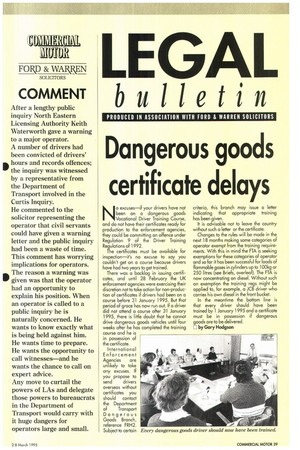COMMENT
Page 41

If you've noticed an error in this article please click here to report it so we can fix it.
After a lengthy public inquiry North Eastern Licensing Authority Keith Waterworth gave a warning to a major operator.
A number of drivers had been convicted of drivers'
IDhours and records offences; the inquiry was witnessed by a representative from the Department of Transport involved in the Curtis Inquiry.
He commented to the solicitor representing the operator that civil servants could have given a warning letter and the public inquiry had been a waste of time. This comment has worrying implications for operators. The reason a warning was given was that the operator had an opportunity to explain his position. When an operator is called to a public inquiry he is naturally concerned. He wants to know exactly what is being held against him. He wants time to prepare. He wants the opportunity to call witnesses—and he wants the chance to call on expert advice.
Any move to curtail the powers of LAs and delegate those powers to bureaucrats in the Department of Transport would carry with it huge dangers for operators large and small.




























































































